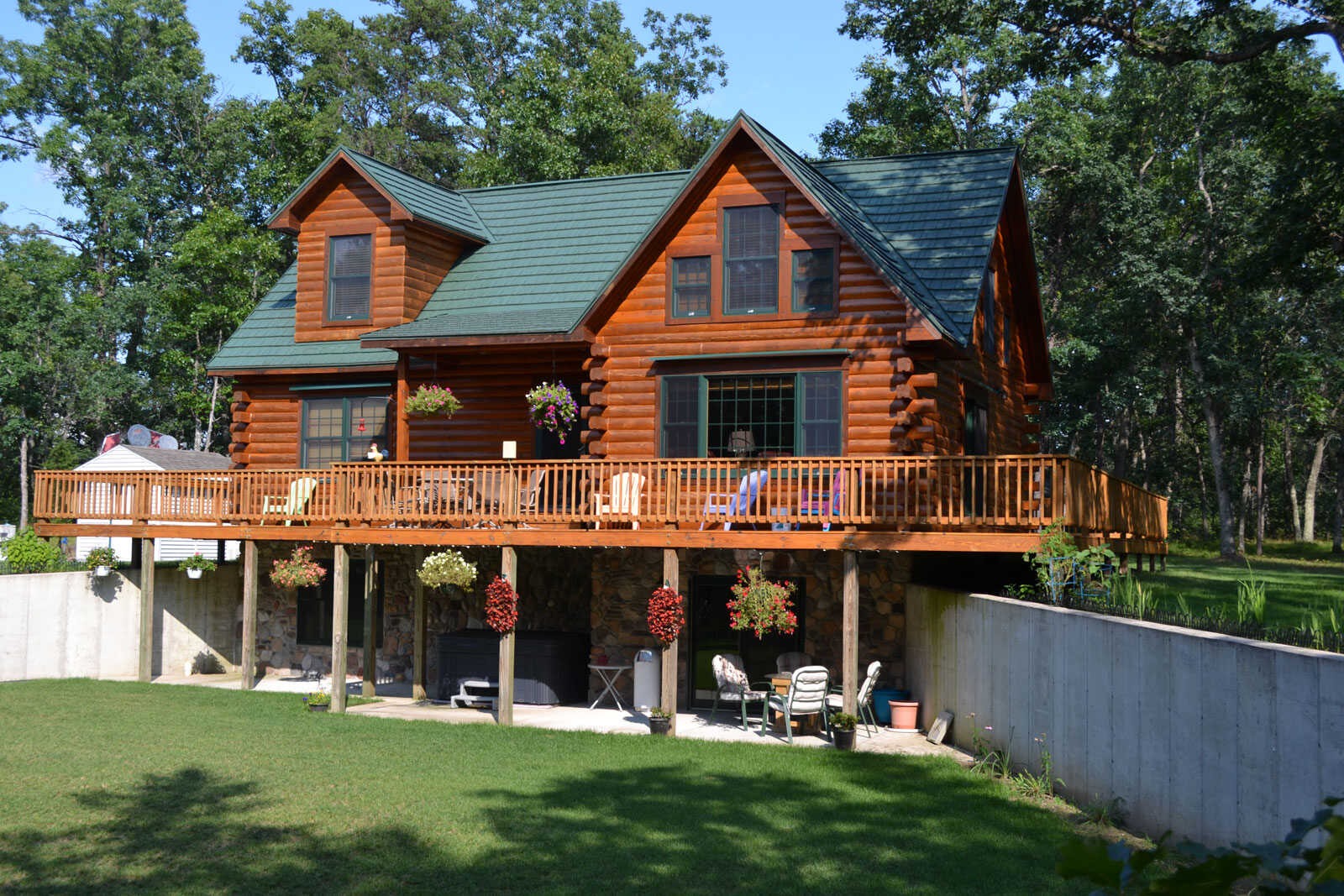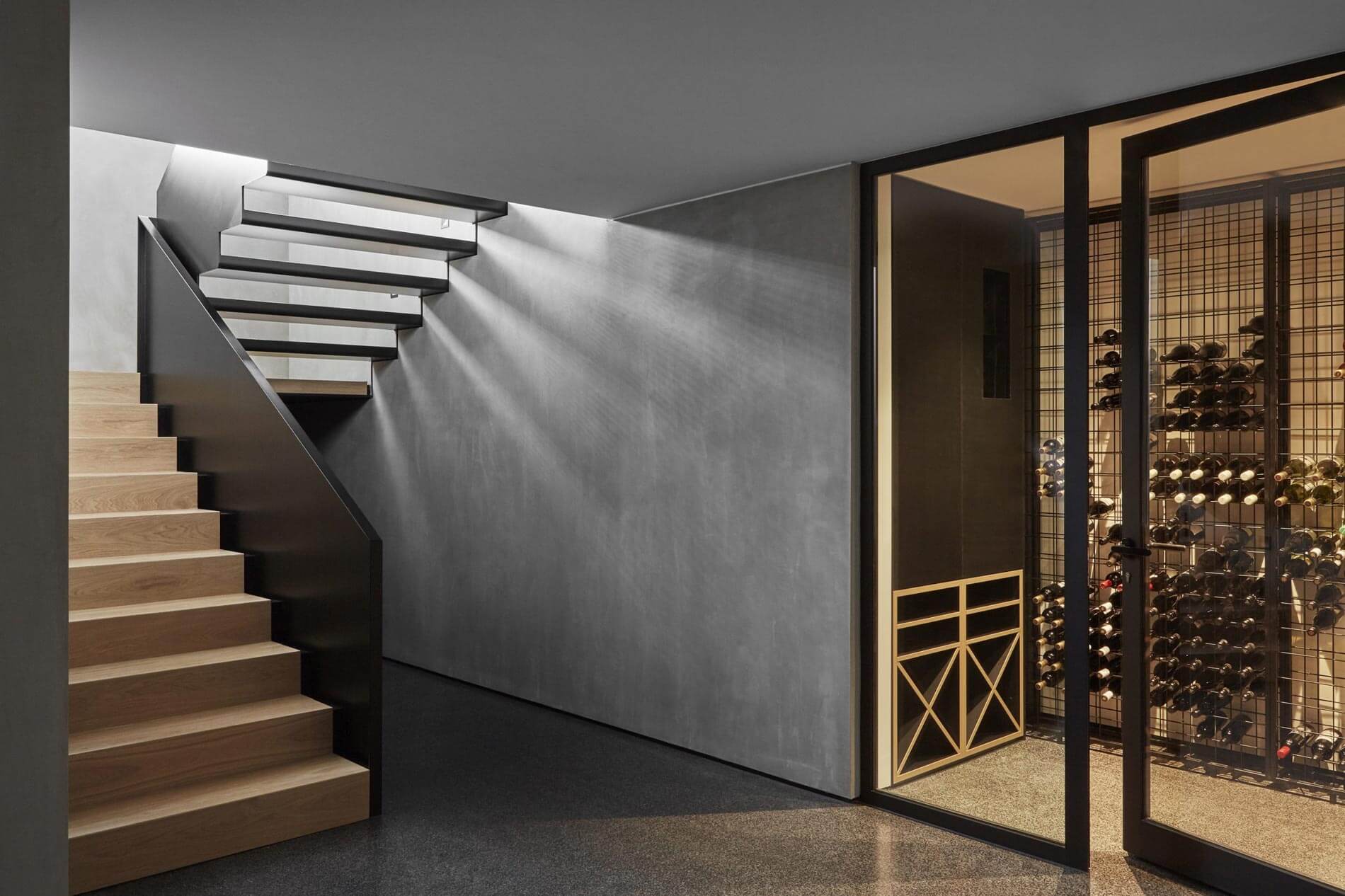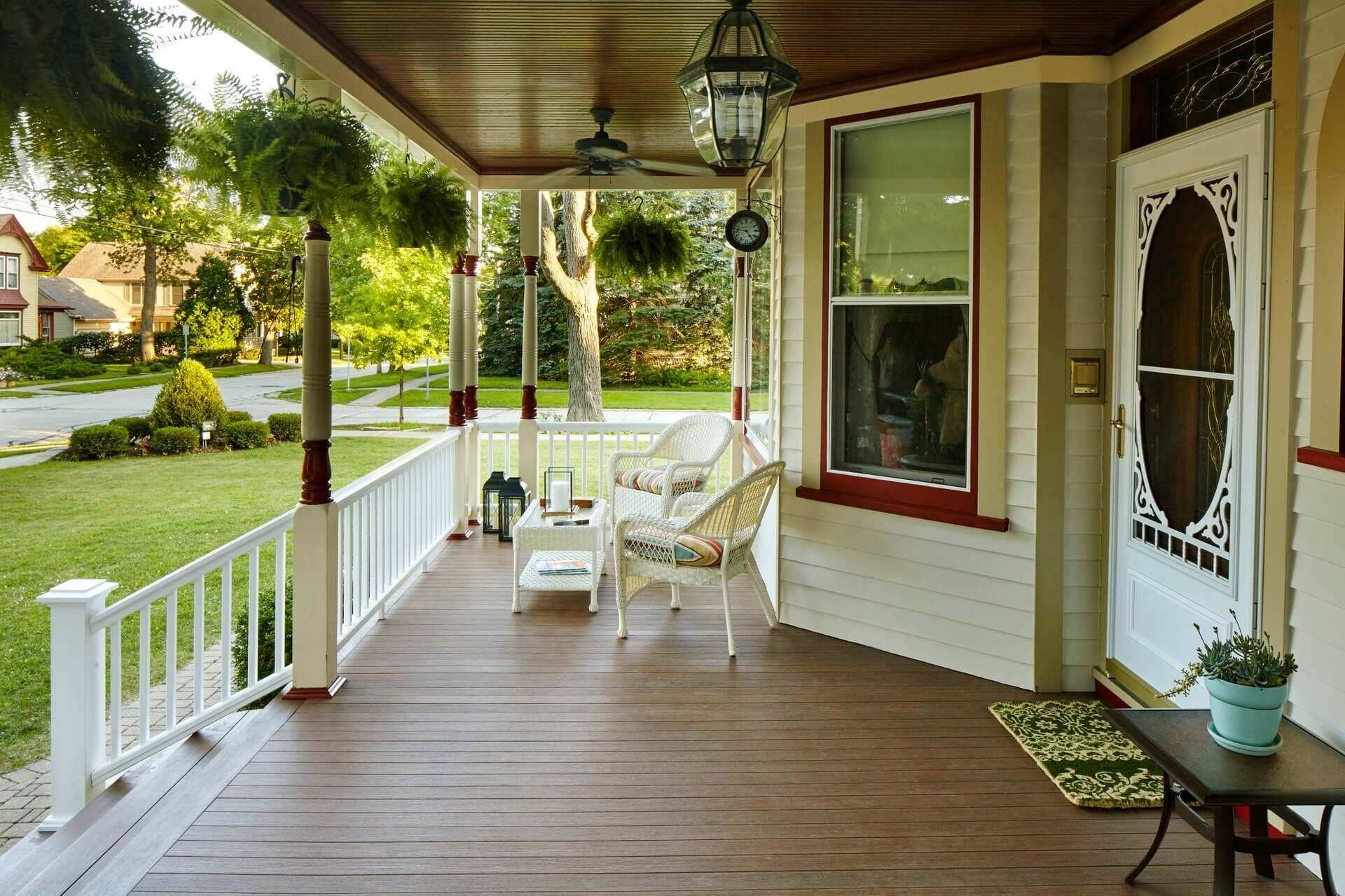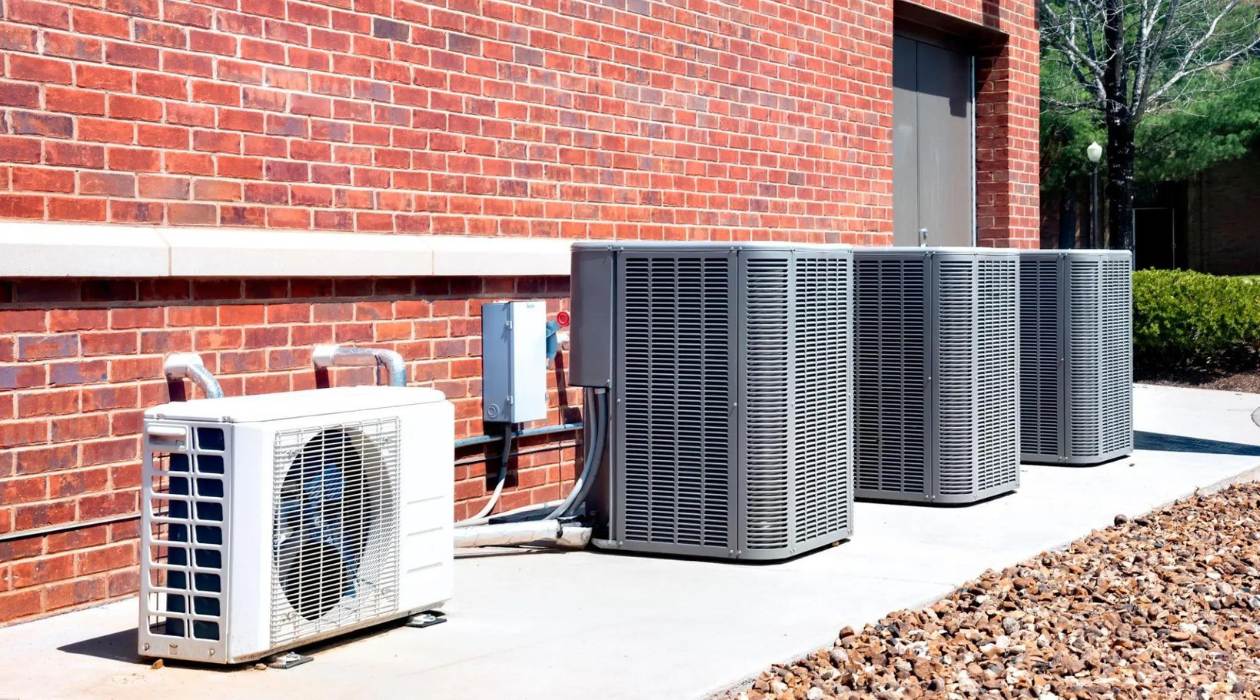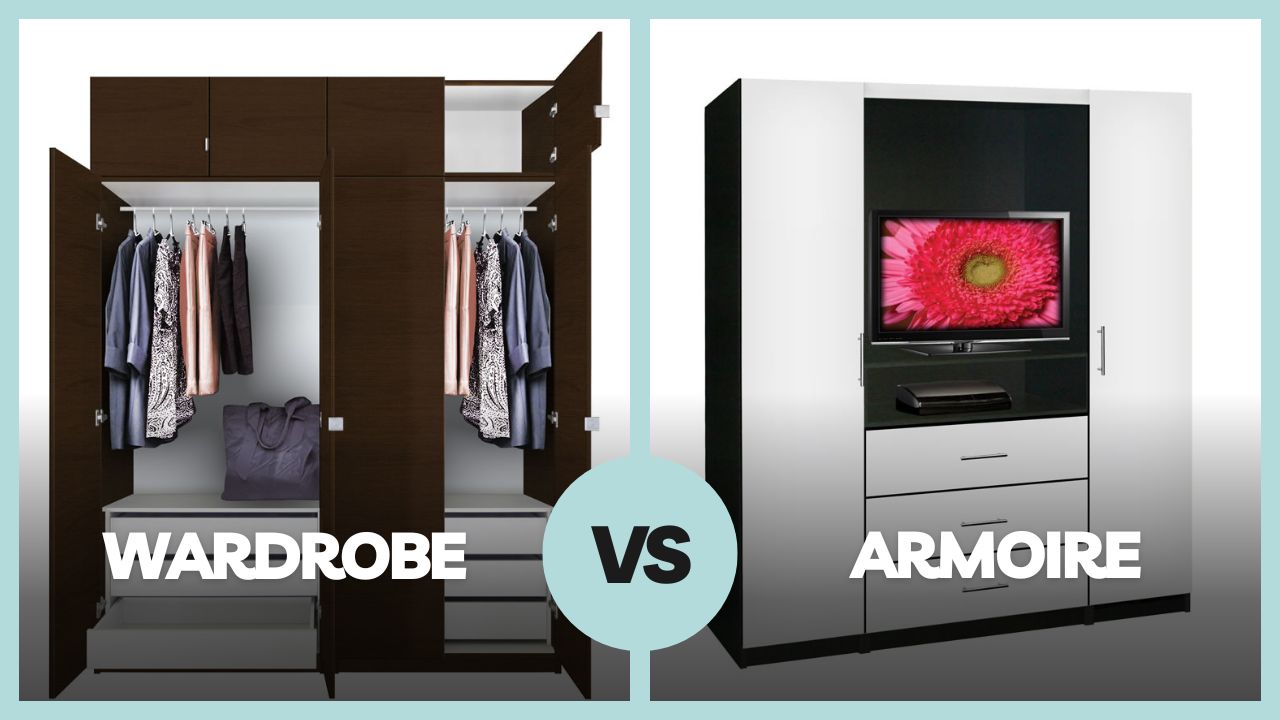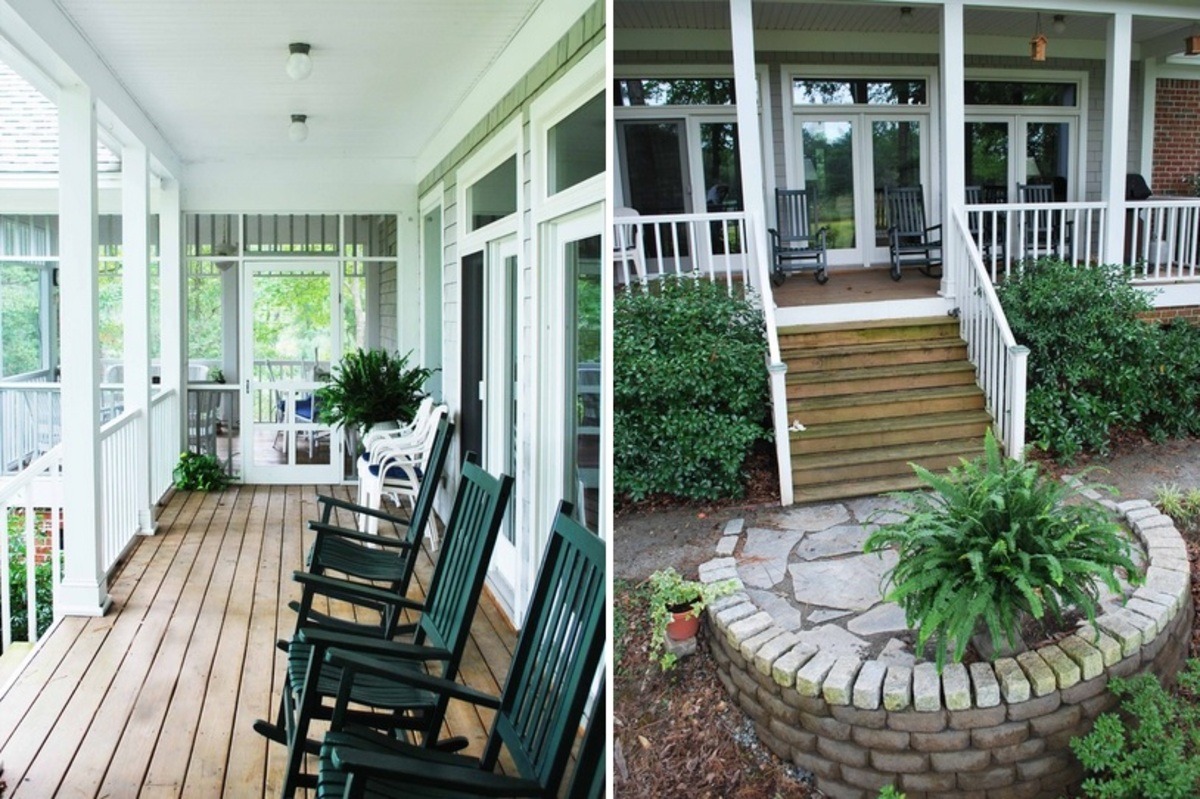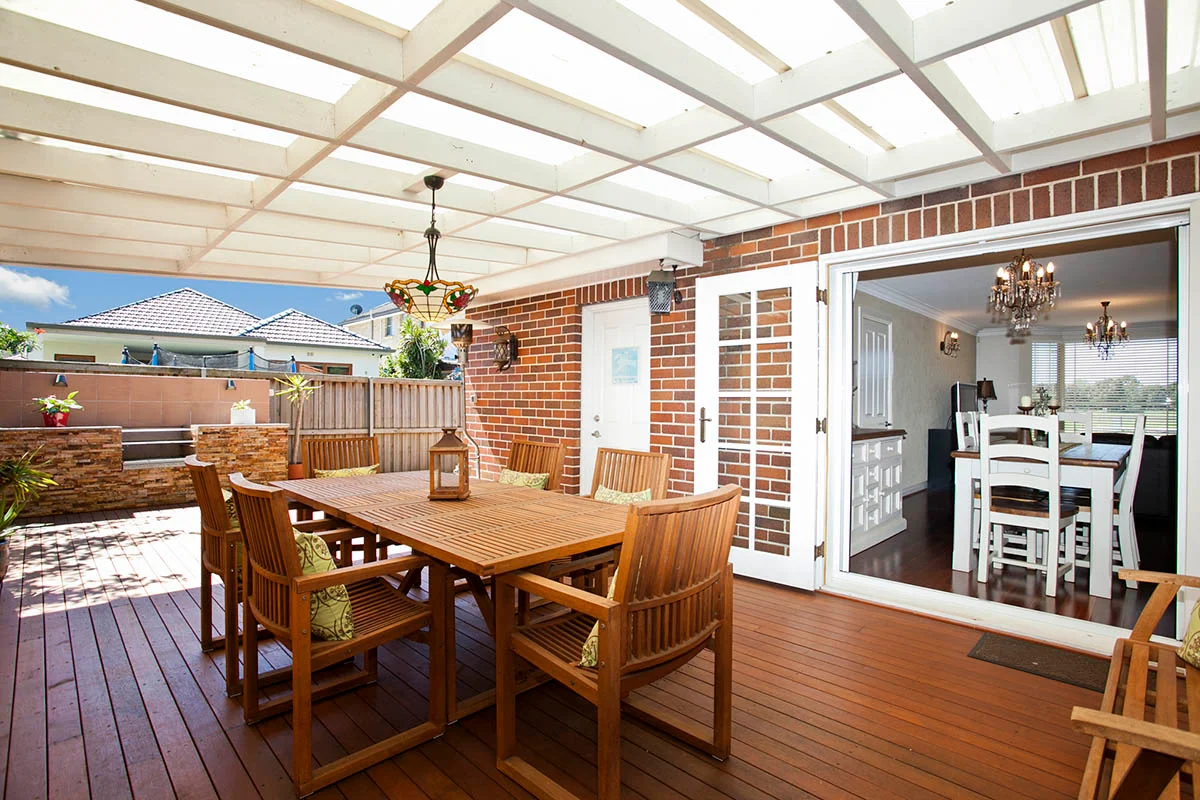Home>Home Security and Surveillance>What Is The Difference Between CCTV And Security Camera
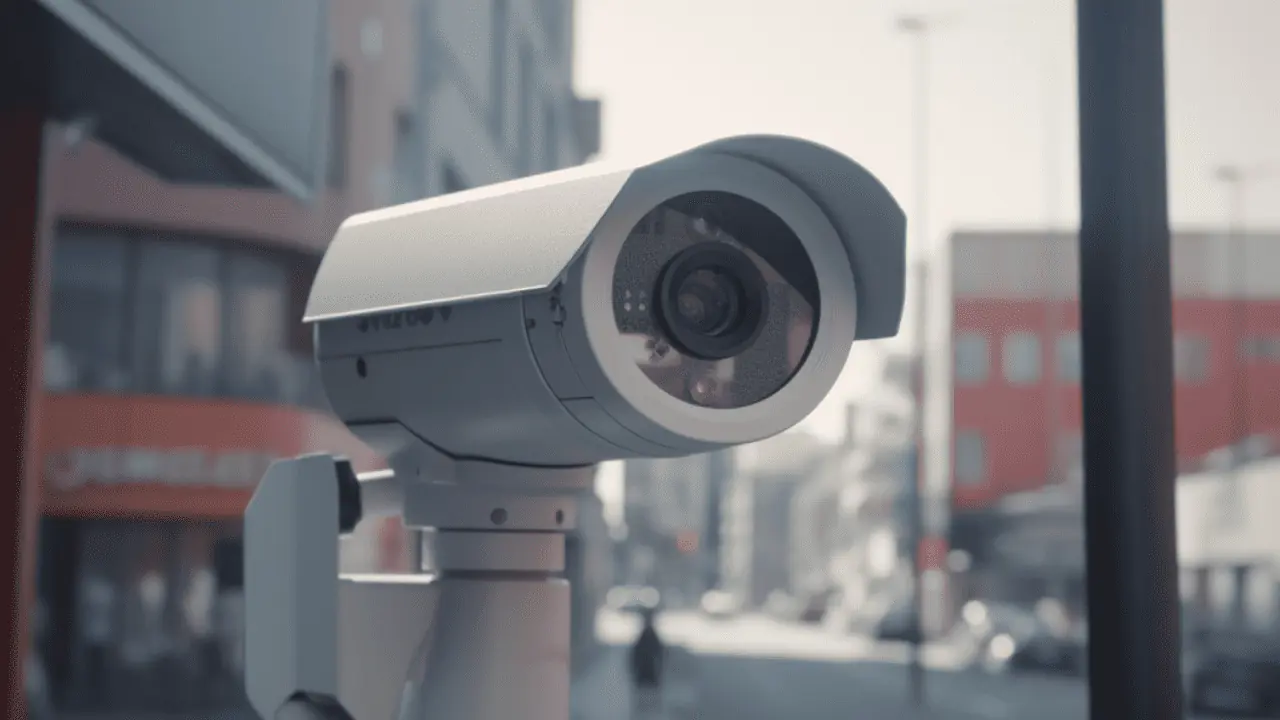

Home Security and Surveillance
What Is The Difference Between CCTV And Security Camera
Modified: March 6, 2024
Discover the key distinctions between CCTV and security cameras for home security and surveillance. Gain insights on their purposes and functionalities to make an informed choice.
(Many of the links in this article redirect to a specific reviewed product. Your purchase of these products through affiliate links helps to generate commission for Storables.com, at no extra cost. Learn more)
Introduction
When it comes to protecting your home and ensuring the safety of your loved ones, investing in a reliable security system is essential. Two common options for home security are CCTV (Closed Circuit Television) and security cameras. While these terms are often used interchangeably, there are some significant differences between them. In this article, we will explore the distinctions, functionality, features, advantages, and disadvantages of both CCTV and security cameras, as well as provide a cost comparison to help you make an informed decision for your home security needs.
Key Takeaways:
- CCTV systems provide comprehensive surveillance with multiple cameras, centralized recording, and monitoring capabilities. They are ideal for larger properties that require extensive coverage and continuous monitoring, but come with higher upfront costs and installation requirements.
- Individual security cameras offer flexibility in placement, scalability, and cost-effectiveness. They are easier to install, customizable based on specific needs, and often have remote access capabilities for real-time monitoring, but may require more technical knowledge for setup and maintenance.
Read more: What Is CCTV Security Cameras
Definition of CCTV
CCTV, or Closed Circuit Television, is a surveillance system that uses cameras to monitor and record activities in a specific location. Unlike traditional television broadcasts, CCTV is a closed-loop system that is not accessible to the public. It includes cameras, recorders, and monitors that work together to capture, store, and display video footage.
CCTV cameras are typically installed in strategic locations to monitor areas that require constant surveillance, such as entrances, hallways, parking lots, and perimeter boundaries. The captured footage is then recorded and stored in digital video recorders (DVR) or network video recorders (NVR) for future reference or analysis.
These systems can be configured for various purposes, such as theft prevention, vandalism deterrence, employee monitoring, public safety, and traffic surveillance. CCTV is widely used in residential, commercial, and public spaces, offering a sense of security and providing valuable evidence in case of incidents or crimes.
Definition of Security Camera
A security camera, also known as a surveillance camera or IP camera, is a device that captures and records video footage to monitor a specific area or property. Security cameras are primarily used for surveillance and monitoring purposes, providing an additional layer of protection against unauthorized activities.
Security cameras are available in various types and designs, including dome cameras, bullet cameras, PTZ (pan-tilt-zoom) cameras, and hidden cameras. They are typically connected to a network, allowing live video feeds to be accessed remotely from a computer, smartphone, or tablet.
Modern security cameras often come equipped with advanced features such as motion detection, night vision, high-resolution recording, and two-way audio communication. These features enhance their effectiveness in capturing clear and detailed footage, even in low-light conditions or during nighttime.
Security cameras are commonly installed both indoors and outdoors to monitor specific areas or points of interest. Some popular locations for security camera installations include entranceways, driveways, hallways, yards, and high-risk areas susceptible to unauthorized access or criminal activities.
With the advancement of technology, security cameras now offer integration with other smart home devices and systems, allowing users to create a comprehensive home security network. This integration enables users to receive real-time alerts, remotely control camera movements, and access video footage through customized mobile applications or computer software.
Functionality of CCTV
The functionality of CCTV systems revolves around capturing, recording, and monitoring video footage in real-time. Here’s a breakdown of how CCTV systems work:
- Video Capture: CCTV cameras are strategically placed to capture video footage of specific areas or zones. The number and placement of cameras depend on the level of coverage needed.
- Video Transmission: The captured video footage is transmitted through cables or wirelessly to the central recording system, which could be a DVR or NVR.
- Video Recording: The central recording system stores the video footage onto hard drives or cloud storage. The recorded footage can be viewed or reviewed at any time, enabling users to analyze events or incidents retrospectively.
- Video Monitoring: The live video feed from the CCTV cameras can be monitored in real-time on dedicated monitors or through remote access devices such as computers, smartphones or tablets.
- Video Playback: CCTV systems allow users to playback recorded footage based on specific time frames and search criteria. This feature is useful for reviewing past events or extracting evidence in case of incidents or crimes.
- Video Analytics: Advanced CCTV systems may incorporate video analytics software to detect and alert users about specific events, such as unauthorized access, motion detection, and object recognition.
Overall, the primary functionality of CCTV is to provide constant surveillance and monitoring of a specific area or property. It acts as a deterrent to potential criminals and provides crucial evidence in case of any security breaches or incidents.
Functionality of Security Cameras
Security cameras are designed to capture, record, and monitor video footage to enhance the security of a specific location or property. The functionality of security cameras can be described as follows:
- Video Capture: Security cameras are strategically positioned to capture video footage of specific areas or points of interest. The number and placement of cameras depend on the surveillance needs of the property.
- Video Transmission: The captured video footage is transmitted either through wired connections or wirelessly to a network video recorder (NVR) or a cloud-based storage system.
- Video Recording: The recorded video footage is stored digitally in the NVR or cloud storage, allowing access to historical recordings for later review or analysis.
- Remote Monitoring: With the advancement of technology, security cameras offer the convenience of remote monitoring. Users can access live video feeds from their cameras through smartphones, tablets, or computers, allowing them to keep an eye on their property from anywhere.
- Motion Detection: Many security cameras are equipped with motion detection technology. They can detect movement within their field of view and send notifications to the user, alerting them of potential intrusions or suspicious activity.
- Night Vision: To maintain surveillance capabilities even in low-light or nighttime conditions, security cameras often come with infrared (IR) sensors or LED lights, enabling them to capture clear footage in the dark.
- Two-Way Audio: Some advanced security cameras feature two-way audio communication, allowing users to communicate with visitors or potential intruders. This feature is especially useful for monitoring entryways or engaging in remote conversations.
The functionality of security cameras provides users with a sense of security and peace of mind, as they can monitor their property and quickly respond to any suspicious activities. The recorded footage can serve as evidence in the event of a security breach or criminal activity.
Features of CCTV
CCTV systems offer a range of features that enhance their surveillance capabilities and provide valuable insights. Here are some notable features of CCTV systems:
- High-Quality Video Recording: CCTV cameras are designed to capture high-resolution video footage, ensuring clear and detailed images of the monitored areas.
- Wide Coverage Area: CCTV systems can cover a wide area due to the ability to install multiple cameras at various angles and positions.
- Remote Access: With the integration of network connectivity, CCTV systems can be accessed remotely through computers, smartphones, or tablets, allowing users to monitor their property from anywhere.
- Scalability: CCTV systems can easily be expanded by adding more cameras and integrating them into the existing surveillance network.
- Motion Detection: Many CCTV cameras are equipped with motion detection technology, which triggers the recording when motion is detected within the camera’s field of view.
- Analytics and Alerts: Advanced CCTV systems may incorporate video analytics software that can detect specific events, such as loitering, object removal, or suspicious behavior, and send instant alerts to users.
- 24/7 Monitoring: CCTV systems are designed for continuous monitoring, providing round-the-clock surveillance and ensuring that no critical events go unnoticed.
- Multiple Recording Options: CCTV systems offer various recording options, including continuous recording, scheduled recording, or event-driven recording, allowing users to choose the most suitable option for their needs.
- Integration with Other Security Systems: CCTV systems can be integrated with other security systems, such as access control systems or alarm systems, to create a comprehensive security network.
- Playback and Search Functions: CCTV systems provide the ability to easily search and review recorded footage based on specific time frames, dates, or events.
These features make CCTV systems highly effective for monitoring and securing properties by providing real-time surveillance, recording vital evidence, and deterring potential threats.
Features of Security Cameras
Security cameras come with a variety of features that enhance their functionality and effectiveness in providing surveillance and protection. Here are some notable features of security cameras:
- High-Resolution Video: Security cameras are equipped with high-resolution sensors, allowing them to capture clear and detailed video footage.
- Different Camera Types: There are various types of security cameras available, including dome cameras, bullet cameras, PTZ (pan-tilt-zoom) cameras, and hidden cameras, each designed for specific surveillance needs.
- Wireless Connectivity: Many security cameras offer wireless connectivity, eliminating the need for complex wiring and providing flexibility in camera placement.
- Remote Viewing: Users can access live video feeds from their security cameras remotely through mobile apps or computer software, enabling them to monitor their property from anywhere.
- Motion Detection: Security cameras often have built-in motion sensors that trigger recording or send alerts when motion is detected within their field of view.
- Night Vision: To ensure surveillance capabilities in low-light or nighttime conditions, security cameras are equipped with infrared (IR) sensors or LED lights, allowing them to capture clear footage even in the dark.
- Two-Way Audio: Some security cameras offer two-way audio communication, enabling users to listen and speak through the camera, facilitating remote interaction with visitors or potential intruders.
- Weatherproof Housing: Outdoor security cameras are designed with weatherproof housing, allowing them to withstand harsh weather conditions and continue operating in adverse environments.
- Wide-Angle Lens: Security cameras often have wide-angle lenses that provide a broad field of view, ensuring that more area is covered with a single camera.
- Cloud Storage: Many security cameras offer cloud storage options, allowing users to securely store and access recorded footage without the need for physical storage devices.
With these features, security cameras provide users with the ability to monitor their property, deter potential threats, and capture valuable evidence in case of security breaches or incidents. The range of features available allows users to customize their security camera setup to meet their specific needs and preferences.
CCTV (closed-circuit television) refers to a system of security cameras that transmit signals to a specific place, while security cameras are individual cameras used for surveillance.
Advantages of CCTV
CCTV systems offer a range of advantages that make them a popular choice for home security and surveillance. Here are some key advantages of CCTV:
- Deterrence: The presence of visible CCTV cameras acts as a deterrent to potential criminals, significantly reducing the risk of burglary, vandalism, or other criminal activities on your property.
- 24/7 Surveillance: CCTV systems offer round-the-clock monitoring, providing constant surveillance of your property, even when you’re not physically present.
- Crime Prevention: The mere presence of CCTV cameras can prevent criminal activities from occurring in the first place. Criminals are less likely to target properties with visible surveillance systems.
- Evidence Collection: In the event of a security breach or criminal activity, CCTV footage provides valuable evidence that can be used by law enforcement to identify and apprehend perpetrators.
- Remote Monitoring: CCTV systems can be accessed remotely via smartphones, tablets, or computers, allowing you to monitor your property from anywhere at any time.
- Safe Work Environment: CCTV systems in the workplace promote a safe environment by discouraging misconduct, reducing workplace accidents, and resolving conflicts.
- Improves Productivity: CCTV monitoring can foster employee accountability, leading to increased productivity and adherence to company policies.
- Public Safety: CCTV cameras in public spaces can help deter criminal activities and provide evidence in case of incidents, contributing to the overall safety and security of the community.
- Reduced Insurance Premiums: Having CCTV surveillance can lower insurance premiums for both residential and commercial properties, as it demonstrates a proactive approach to security.
- Integration with Security Systems: CCTV systems can integrate with other security systems such as access control systems, alarms, or intercoms, creating a comprehensive security network.
The advantages of CCTV systems make them an effective tool for deterring crime, providing evidence, and ensuring the safety and security of both residential and commercial properties.
Advantages of Security Cameras
Security cameras offer numerous advantages that contribute to the overall safety and security of a property. Here are some key advantages of security cameras:
- Deterrence: Visible security cameras act as a deterrent, dissuading potential criminals from targeting your property and reducing the risk of break-ins or vandalism.
- 24/7 Surveillance: Security cameras provide continuous monitoring, ensuring that your property is under surveillance at all times, even when you are not physically present.
- Real-Time Monitoring: With remote access capabilities, security cameras allow you to monitor your property in real-time from anywhere, providing peace of mind and the ability to address any immediate concerns.
- Recorded Evidence: Security cameras capture video footage that serves as valuable evidence in the event of a crime, helping law enforcement investigations and increasing the chances of identifying perpetrators.
- Alert Notifications: Many security cameras have motion detection capabilities, sending instant notifications to your mobile device when activity is detected, allowing for prompt action or investigation.
- Crime Prevention: The presence of security cameras acts as a strong deterrent against criminal activities, as potential intruders are aware that their actions are being recorded and captured on video.
- Enhanced Safety: Security cameras promote a safer environment by monitoring high-risk areas, such as exits, stairwells, or parking lots, reducing the risk of accidents, injuries, or unwanted incidents.
- Improved Insurance Coverage: Installing security cameras can often result in reduced insurance premiums, as it demonstrates proactive measures taken to mitigate risks and protect the property.
- Workplace Monitoring: In a business setting, security cameras help monitor employee activities and behavior, ensuring adherence to company policies, increasing productivity, and preventing theft or misconduct.
- Remote Access Control: Some security cameras offer integration with access control systems, allowing you to remotely grant or deny access to specific areas of your property, increasing security and convenience.
The advantages of security cameras make them an invaluable tool for maintaining the safety, security, and peace of mind of homeowners, businesses, and communities alike.
Disadvantages of CCTV
While CCTV systems offer numerous advantages, they also have some disadvantages that should be considered. Here are some key disadvantages of CCTV:
- Cost: Setting up a CCTV system can be expensive, involving the purchase of cameras, recording devices, and installation costs. Additionally, there may be ongoing maintenance and monitoring fees.
- Privacy Concerns: CCTV systems constantly monitor and record activities, raising concerns about invasion of privacy. It is important to strike a balance between security and respecting individuals’ right to privacy.
- Technical Limitations: CCTV cameras have limitations in terms of range, angle, and clarity of footage. Low-light conditions and changes in weather can also affect the quality of recorded images.
- Reliance on Electricity and Network: CCTV systems require a steady power supply and network connectivity to function effectively. Power outages or network disruptions can render the system temporarily ineffective.
- False Sense of Security: While CCTV systems can deter some crimes, they may also create a false sense of security. It is important to supplement CCTV with other security measures to ensure comprehensive protection.
- Installation Limitations: Installing CCTV cameras may not be feasible or allowed in certain locations due to legal or logistical constraints. This can limit the coverage and effectiveness of the system.
- Maintenance and Upkeep: CCTV systems require regular maintenance and upkeep, including cleaning lenses, replacing faulty equipment, and ensuring the system is functioning optimally.
- Storage Requirements: Storing the recorded footage from CCTV cameras can require significant storage space, whether it’s on physical hard drives or cloud-based storage systems. This can add to the overall cost of the system.
- Technical Expertise: Setting up and maintaining a CCTV system may require technical expertise. This can be a challenge for individuals who are not familiar with technology or lack the necessary knowledge.
- Limited Field of View: Depending on the camera placement, there may be blind spots or areas that are not fully covered by the CCTV system, leaving potential vulnerabilities.
Considering these disadvantages can help individuals make informed decisions about the implementation of CCTV systems and take appropriate measures to address any associated challenges.
Disadvantages of Security Cameras
While security cameras offer valuable benefits, they also come with some disadvantages that should be taken into account. Here are some key disadvantages of security cameras:
- Cost: Installing a comprehensive security camera system can be costly, including the purchase of cameras, recording devices, and other equipment, as well as installation and maintenance expenses.
- Privacy Concerns: The presence of security cameras raises concerns about privacy, as individuals may feel uneasy about being constantly monitored and recorded, especially in private spaces.
- Technical Limitations: Security cameras have technical constraints, such as limited field of view, varying image quality in different lighting conditions, and potential blind spots that can leave certain areas vulnerable to unauthorized activities.
- Reliance on Power and Internet: Security cameras rely on a stable power supply and internet connection. Power outages or network disruptions can temporarily render the cameras ineffective, leaving the property vulnerable during those times.
- Maintenance and Upkeep: Security cameras require regular upkeep, including cleaning, adjusting positioning, and replacing faulty components. Failure to maintain the cameras can lead to reduced effectiveness or complete malfunction.
- Legal and Ethical Considerations: Proper usage of security cameras involves complying with local laws and regulations, such as ensuring cameras are not pointed towards neighboring properties or public areas.
- False Alarms: Motion detection capabilities in security cameras can sometimes lead to false alarms triggered by animals, weather conditions, or everyday movements. These false alarms can be inconvenient and waste valuable time and resources.
- Dependence on Lighting Conditions: Some security cameras may struggle in low-light or nighttime conditions, resulting in less detailed or distorted video footage, which can hinder the ability to identify individuals or incidents.
- Limited Effectiveness Against Determined Intruders: While security cameras can act as deterrents, determined intruders may still find ways to disable or avoid them, especially if they are aware of their presence and capabilities.
- Initial Setup and Learning Curve: Setting up a security camera system may require technical knowledge, and users may need to familiarize themselves with the software or apps to effectively operate and access the cameras.
Considering these disadvantages can help individuals make informed decisions about implementing security cameras, and take appropriate measures to address any associated challenges or limitations.
Cost Comparison between CCTV and Security Camera
When considering home security options, it’s important to evaluate the cost implications of implementing a CCTV system versus installing individual security cameras. Here’s a cost comparison between CCTV and security cameras:
CCTV:
CCTV systems typically require a larger upfront investment compared to individual security cameras. The cost of a CCTV system depends on various factors, including the number of cameras, the quality of cameras, additional equipment, and professional installation fees.
Here’s a breakdown of the potential costs associated with a CCTV system:
- Cameras: CCTV systems may require multiple cameras to adequately cover the desired areas, with costs per camera ranging from $50 to several hundred dollars, depending on the features and resolution.
- Recording Device: A digital video recorder (DVR) or network video recorder (NVR) is necessary for storing and accessing the recorded footage. These devices range in price from $100 to $500.
- Monitoring Equipment: CCTV systems often have dedicated monitors for live video monitoring, which can range from $100 to $300.
- Installation: Professional installation is recommended to ensure proper camera placement and optimal system functionality. Installation fees can vary but typically range from $200 to $500.
- Wiring and Cabling: Depending on the complexity of the CCTV system and the location of cameras, additional costs may be incurred for wiring and cabling, which can range from $100 to $500.
Overall, the cost of a CCTV system with multiple cameras, recording equipment, monitoring devices, installation, and wiring can range from a few hundred to several thousand dollars, depending on your specific needs and requirements.
Individual Security Cameras:
Individual security cameras offer a more flexible and cost-effective option compared to CCTV systems. Here’s an overview of the potential costs associated with individual security cameras:
- Cameras: Individual security cameras can range in price depending on the brand, features, resolution, and connectivity options. Prices can vary from $50 to $300 per camera.
- Recording and Storage: To store recorded footage, you can either use the camera’s built-in storage, which may have limitations, or opt for cloud storage solutions, which typically involve monthly or yearly subscription fees starting from $5 per month.
- Networking and Connectivity: Depending on your camera’s features, you may need to ensure a stable internet connection, which may involve additional costs for routers, range extenders, or security network setups.
- Power Source: Some security cameras require power outlets, while others may be battery-powered or have solar options. Battery-powered or solar cameras may be more expensive upfront but eliminate the need for wiring and power consumption.
With individual security cameras, costs are more customizable based on the number of cameras required, the desired features, and the selected recording and storage options. Generally, implementing individual security cameras can be a more affordable option compared to a full CCTV system.
Ultimately, the costs associated with both CCTV and individual security cameras depend on various factors including the number of cameras needed, the desired features, the quality of equipment, installation requirements, and ongoing maintenance expenses. It’s crucial to evaluate your specific security needs and budget constraints to determine the most suitable option for your home security system.
Conclusion
Choosing the right security solution for your home is essential in ensuring the safety and protection of your loved ones and property. Both CCTV systems and individual security cameras offer valuable features and advantages, but they also have their own unique differences and considerations.
CCTV systems provide comprehensive surveillance with multiple cameras, centralized recording, and monitoring capabilities. They are ideal for larger properties that require extensive coverage and continuous monitoring. However, CCTV systems come with higher upfront costs, installation requirements, and may raise privacy concerns.
On the other hand, individual security cameras offer flexibility in terms of placement, scalability, and cost-effectiveness. They are easier to install, customizable based on specific needs, and often have remote access capabilities for real-time monitoring. However, individual security cameras may require more technical knowledge for setup and maintenance, and the cost can vary depending on the number and quality of cameras chosen.
In the end, the choice between CCTV and individual security cameras depends on your specific requirements, budget, and preferences. Consider factors such as the size of your property, desired coverage area, technical expertise, ongoing maintenance, and privacy considerations.
Regardless of the option you choose, investing in a home security system adds an invaluable layer of protection. The presence of cameras alone can act as a deterrent to criminals, and the ability to record and monitor activities provides crucial evidence in case of incidents or suspicious behavior.
Remember to weigh the advantages and disadvantages, evaluate the costs, and ensure that your chosen security solution aligns with your needs and preferences. Whether you opt for a CCTV system or individual security cameras, your choice will ultimately contribute to the safety and security of your home.
Frequently Asked Questions about What Is The Difference Between CCTV And Security Camera
Was this page helpful?
At Storables.com, we guarantee accurate and reliable information. Our content, validated by Expert Board Contributors, is crafted following stringent Editorial Policies. We're committed to providing you with well-researched, expert-backed insights for all your informational needs.


